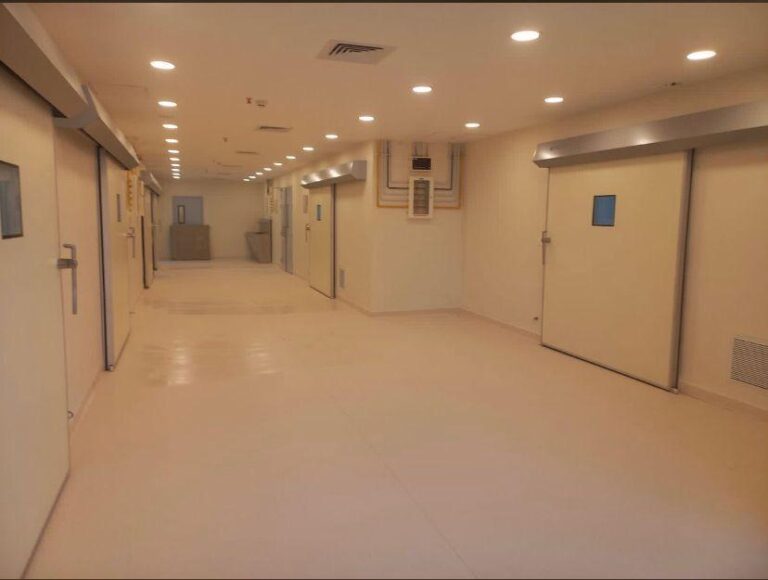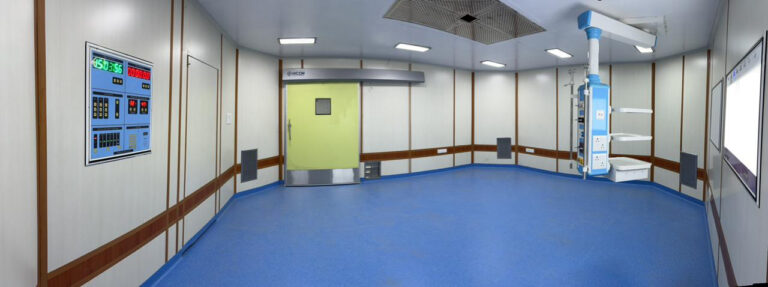In medical and scientific environments, ensuring safety is paramount. Hospitals and research centers often deal with radiation-based procedures, making it crucial to implement protective measures to safeguard staff, patients, and researchers. One of the most effective safety solutions is the installation of anti-radiation doors. These specialized doors play a vital role in shielding against harmful radiation exposure while maintaining a secure and controlled environment.
The Importance of Radiation Protection
Radiation is commonly used in hospitals for diagnostic imaging, cancer treatments, and various research applications. X-rays, CT scans, and radiation therapy all emit potentially harmful radiation. Without proper containment, these emissions can pose serious health risks, including long-term exposure leading to radiation-related illnesses. Similarly, research facilities working with radioactive materials must adhere to strict safety standards to prevent contamination and exposure.
How Anti-Radiation Doors Work
Anti-radiation doors are specifically designed to block and reduce the transmission of harmful radiation. They are typically constructed using lead-lined cores, stainless steel, or other radiation-shielding materials. These doors provide:
- Effective Radiation Shielding – The lead lining within these doors prevents the leakage of radiation, ensuring that areas outside the treatment or research room remain safe.
- Enhanced Safety for Medical Staff and Patients – By preventing radiation exposure, these doors help maintain a secure environment, reducing health risks for those working or being treated in these spaces.
- Compliance with Regulatory Standards – Hospitals and research facilities must comply with radiation protection guidelines set by health and safety authorities. Installing anti-radiation doors ensures adherence to these regulations, avoiding legal and health-related consequences.
Applications of Anti-Radiation Doors
1. Hospitals and Diagnostic Centers
Medical imaging departments frequently use anti-radiation doors in rooms where X-ray, CT scans, and MRI scans are conducted. These doors ensure that radiation does not escape beyond designated areas, protecting staff and visitors from unnecessary exposure.
2. Cancer Treatment Facilities
Radiation therapy is a critical part of cancer treatment. Patients undergoing treatment are exposed to controlled doses of radiation, but without proper shielding, the radiation could pose risks to medical personnel and other patients. Anti-radiation doors act as a necessary barrier, ensuring that radiation remains confined to treatment rooms.
3. Research Laboratories
Many research facilities deal with radioactive substances for testing and analysis. In these environments, anti-radiation doors prevent radiation leaks, ensuring a safe workspace for scientists and technicians. These doors also aid in maintaining the integrity of experiments that require controlled environments.
4. Industrial and Nuclear Facilities
Beyond medical and research fields, industries that work with nuclear energy or radiation-emitting equipment also require effective shielding. Anti-radiation doors provide essential protection against radiation exposure in these high-risk environments.
Key Features to Consider When Choosing Anti-Radiation Doors
When selecting anti-radiation doors, hospitals and research centers should consider several factors:
- Material and Shielding Efficiency – Ensure that the door contains adequate lead lining or other shielding materials that meet radiation protection standards.
- Door Sealing and Locking Mechanisms – A well-sealed door prevents radiation leaks and enhances overall safety.
- Customization Options – Depending on the facility’s needs, doors can be customized in terms of size, thickness, and automatic or manual operation.
- Durability and Maintenance – High-quality anti-radiation doors require minimal maintenance and offer long-lasting protection.
Conclusion
The importance of anti-radiation doors in hospitals and research centers cannot be overstated. These doors serve as a crucial safety barrier, protecting healthcare professionals, patients, and researchers from harmful radiation exposure. By investing in high-quality radiation-shielding doors, medical and scientific facilities ensure compliance with safety regulations while providing a secure environment for their operations.
For hospitals, research labs, and industries that require radiation protection, partnering with a reliable supplier of anti-radiation doors is essential. With advanced technology and superior materials, these doors help maintain safety standards and contribute to overall health and well-being in radiation-prone environments.


